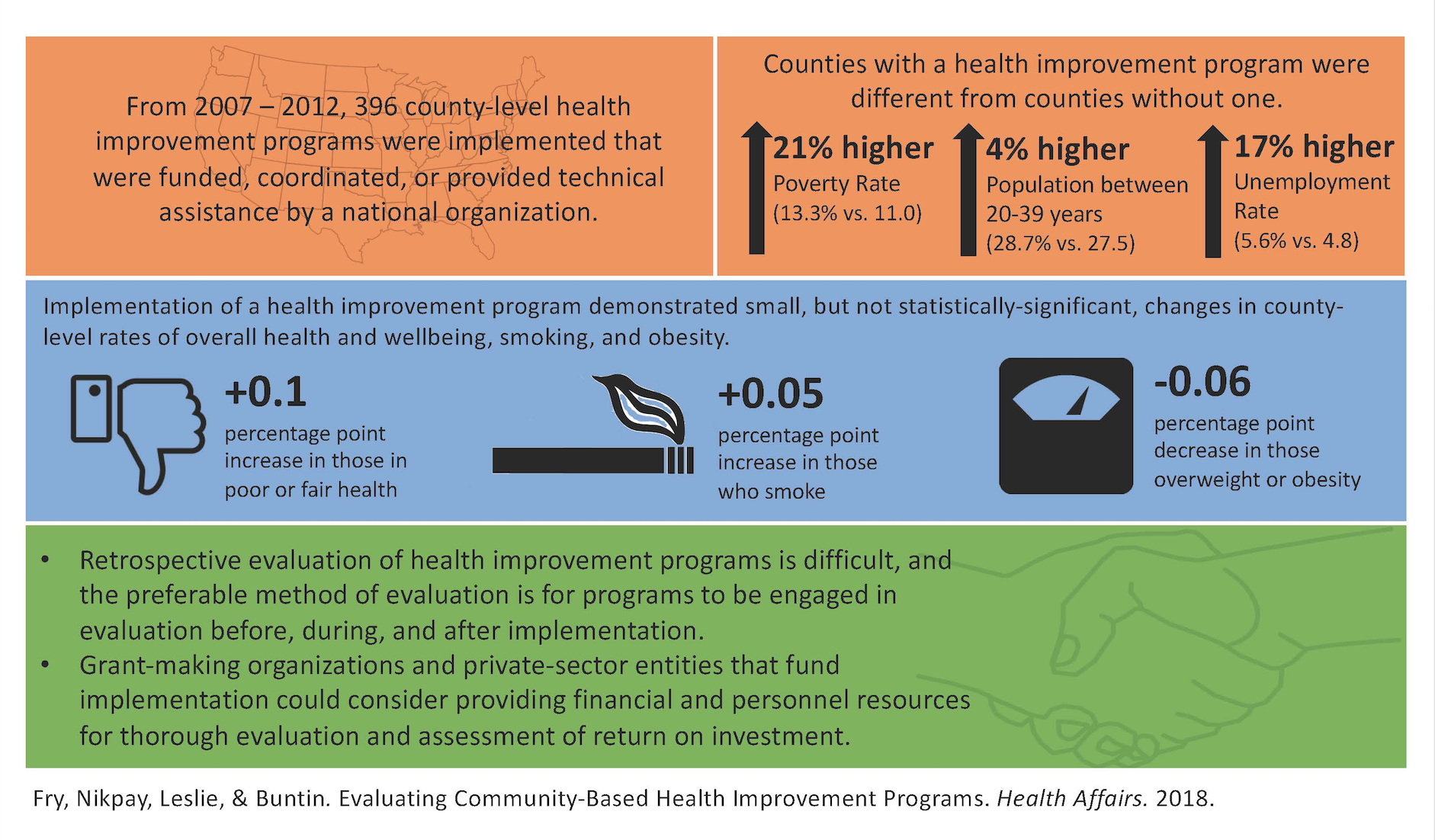ABSTRACT
Increasingly, public and private resources are being dedicated to community-based health improvement programs. But evaluations of these programs typically rely on data about process and a pre-post study design without a comparison community. To better determine the association between the implementation of community-based health improvement programs and county-level health outcomes, we used publicly available data for the period 2002–06 to create a propensity-weighted set of controls for conducting multiple regression analyses. We found that the implementation of community-based health improvement programs was associated with a decrease of less than 0.15 percent in the rate of obesity, an even smaller decrease in the proportion of people reporting being in poor or fair health, and a smaller increase in the rate of smoking. None of these changes was significant. Additionally, program counties tended to have younger residents and higher rates of poverty and unemployment than nonprogram counties. These differences could be driving forces behind program implementation. To better evaluate health improvement programs, funders should provide guidance and expertise in measurement, data collection, and analytic strategies at the beginning of program implementation.
1. Carrie E. Fry (carrie_fry@g.harvard.edu) is a doctoral student in health policy at the Harvard Graduate School of Arts and Sciences, in Cambridge, Massachusetts. (She is also a former Health Policy Analyst for the Department of Health Policy at Vanderbilt University School of Medicine)
2. Sayeh S. Nikpay is an assistant professor in the Department of Health Policy at Vanderbilt University School of Medicine, in Nashville, Tennessee.
3. Erika Leslie is a postdoctoral fellow in the Department of Health Policy at Vanderbilt University School of Medicine.
4. Melinda B. Buntin is a professor in and chair of the Department of Health Policy at Vanderbilt University School of Medicine.
